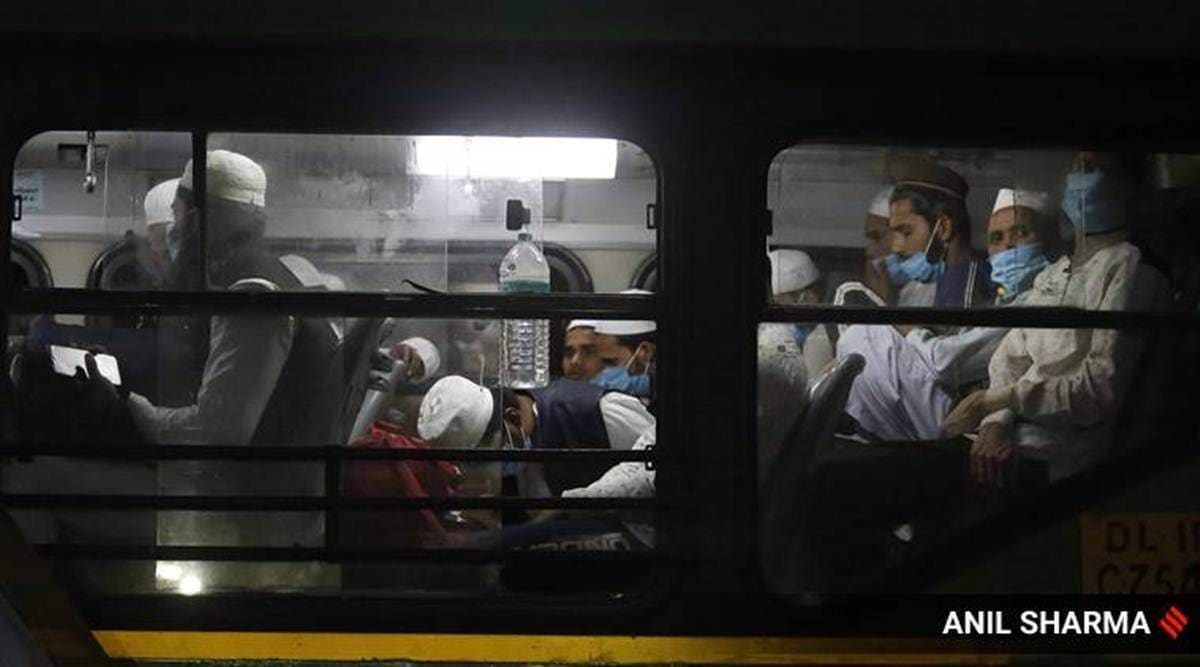 On August 21, a division bench of Justice Tanaji V Nalawade and Justice Mukund G Sewlikar passed a judgement on three separate petitions by the 29 foreigners, in connection with the Tablighi Jamaat gathering in Delhi.
On August 21, a division bench of Justice Tanaji V Nalawade and Justice Mukund G Sewlikar passed a judgement on three separate petitions by the 29 foreigners, in connection with the Tablighi Jamaat gathering in Delhi. Justice Mukund G Sewlikar, one of the two judges of the Bombay High Court, who last week filed against 29 foreign nationals and six Indians in connection with a Tablighi Jamaat gathering in Delhi in March, Thursday disagreed with observations made by a senior judge that the action against the gathering was an “indirect warning to Indian Muslims” after the protests against the Citizenship Amendment Act (CAA).
On August 21, a division bench of Justice Tanaji V Nalawade and Justice Mukund G Sewlikar passed a judgement on three separate petitions by the 29 foreigners, charged with violating their visa terms and Epidemic Act guidelines, and the six Indians accused of granting them shelter in Ahmednagar district of Maharashtra.
“A political government tries to find a scapegoat when there is a pandemic or calamity and the circumstances show that there is a probability that these foreigners were chosen to make them a scapegoat,” the court had said.
At the end of the August 21 judgment, Justice Sewlikar had said that while he agreed with the part of the order quashing the FIRs, he had differing views on a few observations made by Justice Nalawade. Justice Sewlikar on Thursday passed a separate order, with his reasons.
Justice Sewlikar said that he agreed with all observations made by Justice Nalawade except the part pertaining to CAA protests and said that since none of the offences were made out by the prosecution, chargesheets against petitioners deserved to be quashed.
“I find it difficult to concur with these observations as allegations in this respect are not made in the petitions nor there is any evidence in this regard. Therefore, in my opinion these observations are outside the scope of the petitions,” he said.
He referred to Justice Nalawade’s observations in the 58-paged judgement, which stated, “There were protests… at many places in India from at least prior to January 2020. Most of the persons (who) participated in the protests were Muslims. It is their contention that the Citizenship (Amendment) Act, 2019, is discriminatory against Muslims… They were protesting against the National Register of Citizens (NRC).”
Justice Nalawade went on to note, “It can be said that due to the action taken, fear was created in the minds of those Muslims. This action indirectly gave warning to Indian Muslims that action in any form and for anything can be taken against Muslims. It was indicated that even for keeping contact with Muslims of other countries, action will be taken against them. Thus there is smell of malice to the action taken against these foreigners and Muslim for their alleged activities. The circumstance like malice is an important consideration when relief is claimed of quashing of FIR and the case itself.”